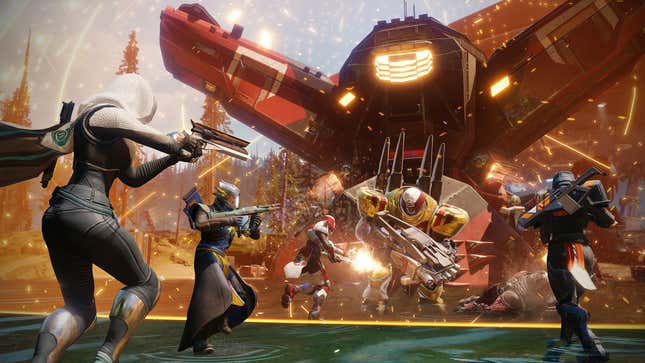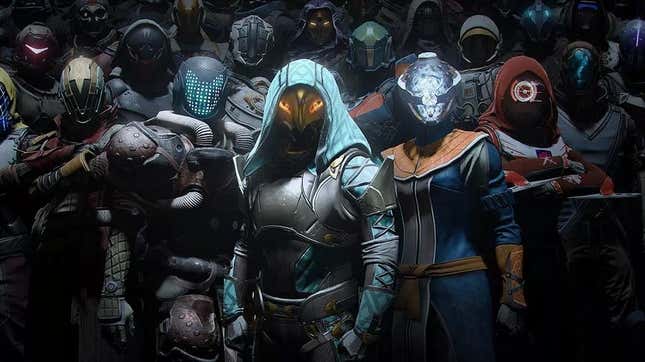
Since it acquired Activision Blizzard, we’ve heard a lot of hedged words from Microsoft about potential Xbox exclusivity for Call of Duty in the years to come. In contrast, Sony is being much more upfront regarding its newly announced plan to acquire Bungie: Destiny 2 will remain multiplatform, as will the studio’s other projects in development.
“Everybody wants the extremely large Destiny 2 community, whatever platform they’re on, to be able to continue to enjoy their Destiny 2 experiences,” Bungie CEO Pete Parsons told Gamesindustry.biz in an interview. “And that approach will apply to future Bungie releases. That is unequivocal.”
PlayStation boss Jim Ryan went even further. “Philosophically, this isn’t about pulling things into the PlayStation world,’’ he said in the same interview. “This is about building huge and wonderful new worlds together.”
Bungie promised in a blog post today that Destiny 2 will continue to be supported on non-PlayStation platforms, and the experience elsewhere will not be negatively impacted. As just one example, the game’s massive upcoming February 22 expansion, The Witch Queen, won’t launch with any platform exclusives, a common occurrence in the game’s past. “Every player should have an amazing Destiny experience, no matter where you choose to play,” the studio wrote.

That’s in contrast to recent acquisitions by both Sony and Microsoft. Bethesda’s upcoming Skyrim in space, Starfield, will be an Xbox exclusive, while Returnal maker Housemarque and Sony’s other recently acquired studios are poised to continue making PS5 exclusives. Sony’s playing its Bungie acquisition more like Microsoft’s did its purchase of Minecraft: One of gaming’s original metaverses remains available, and super popular, on PlayStation systems.
It’s also a far cry from Sony’s position on multiplatform play in the past. Bungie reportedly wanted to add account migration between PS4 and PC when 2018's Forsaken expansion came out, but Sony stalled the implementation. Instead, the feature wasn’t added until 2019, with full cross-play integration between PlayStation, Xbox, and PC only just arriving last year.
So what’s Sony getting out of the deal if not more leverage in the race for exclusive content? One thing is a blueprint for creating successful live-service games in an industry full of failed attempts. (Sony reportedly took a look at acquiring Warframe maker Digital Extremes in the past as well.)
“We have an aggressive roadmap with live services,” Ryan said.
Later in the interview he continued:
I would back us to do [live-service games] ourselves, but when you have the potential to have a partner like Bungie who has been there, done it all before, learned the lessons and have got this wonderful, brilliant team who is there and has the potential to help us...we think we can take something that would have taken a certain number of years, and significantly decrease the time it will take to get it right.
While Sony established no shortage of critically acclaimed and high-selling first-party games during the PS4’s life, they were all—from Horizon Zero Dawn to The Last of Us Part II—predominantly single-player, narrative-driven spectacles. There were no Halo: Infinite, Forza Horizon, or Sea of Thieves. With the Bungie deal, Ryan implies Sony’s not just getting Destiny 2, but an accelerated plan to make additional multiplayer games-as-a-service (GaaS), though it remains to be seen if those future Sony projects will be similarly “multiplatform,” or just eventually ported to PC.